
- Home
- About Us
- Sustainability
- Investors
- News
- People & Culture
-
Regions
MTN Group, in partnership with the University of Johannesburg (UJ) and the African Editors Forum (TAEF), today launched the Pan-African Media Innovation Programme (MIP), a continental initiative to equip journalists with the skills, tools, and networks required to navigate a rapidly changing information environment.
The programme builds on the success of the MTN Nigeria MIP, established in 2022, and now extends the model to media practitioners across MTN’s footprint. It offers a certified 12-week curriculum, delivered independently by UJ and TAEF, which combines online academic modules with in-person immersion in Johannesburg. Participants will explore digital transformation, the sustainability of independent media, ethics and law, entrepreneurship, and the impact of platforms and emerging technologies on the information ecosystem. Industry masterclasses, newsroom visits, and innovation projects will connect academic learning to practice.
The launch comes at a time when Africa, like the rest of the world, faces rising levels of fake news, coordinated disinformation, and fragile business models. Strengthening media resilience is critical to advancing the African Union’s Agenda 2063 goal of inclusive, informed, and democratic societies. For MTN, the initiative also aligns with its role as a trusted partner to the countries where it operates, ensuring that connectivity supports not only digital access but also the institutions that safeguard trust.
Speaking at the launch, Nompilo Morafo, MTN Group Chief Sustainability and Corporate Affairs Officer said, “Africa’s digital future depends on both the infrastructure we build and the strength of the institutions that foster trust and accountability. Through the Pan-African MIP, we are investing in media capacity and innovation alongside respected academic and editorial partners. Together we aim to strengthen the information ecosystems that are essential for resilient democracies and inclusive growth.”
UJ spokesperson added, “Our partnership ensures that the programme is rooted in academic rigour while responsive to the realities of newsrooms. Equipping journalists with the skills to navigate disruption and build sustainable models is critical for the future of the profession.”
African Editors Forum spokesperson said, “Editors across Africa welcome this initiative. Independent media are indispensable to democratic governance, and partnerships such as this provide a pathway to greater resilience, collaboration, and trust.”
The launch, held at MTN’s Innovation Centre in Johannesburg, coincided with a visit from Nigerian journalists representing the MIP Alumni Association, symbolising the transition from a national programme to a Pan-African platform. The first cohort of fellows will begin in 2026.

MTN Group has embarked on an exciting journey to leverage responsible Artificial Intelligence (AI) to reshape Africa at the leading edge of technology, igniting change, inspiring progress and creating a brighter future for generations to come.
“AI is no longer an enabler — it’s the engine reshaping businesses, redefining value creation and rewriting the rules of global innovation and competitiveness,” says MTN Group Digital Infrastructure CEO and GCTIO Mazen Mroué. “AI is not just about automation — it’s about boosting human potential, increasingly becoming seamlessly embedded into our daily activities, decisions and experiences, transforming how we live and work.”
He says AI is augmenting human intelligence like never before and “we at MTN are developing AI for Africa by Africans, unlocking sustainable value for all”.
According to PwC’s Global Artificial Intelligence Study, AI can transform global productivity and economic activity and is predicted to add US$15.7 trillion to the global economy by 2030.
Assuming Africa captures 10% of the global AI market, a recent SAP report projects that AI could add US$1.5 trillion to the continent’s economy by 2030. The SAP report also predicts that 230 million new digital jobs will be created in Africa by 2030. Statista projects that the AI market in Africa could reach US$4.51 billion in 2025 and grow to US$18.7 billion by 2030.
As AI adoption accelerates, the GSMA says it is crucial that it is designed, developed and deployed with ethical considerations in mind. As a result, the industry association collaborated with a group of operators and others to co-create a Responsible AI Maturity Roadmap, supporting the advancement of innovative and trustworthy AI applications.
MTN’s AI journey is designed around three key principles, in line with global best practice. These encompass a comprehensive governance structure aspiring to achieve ethical, effective and safe AI adoption; an agile and scalable operating model for measured AI implementation; and targeted use cases that deliver tangible value.
MTN has developed a world-class Responsible AI Policy to guide AI deployment and usage. It has also set up a special sub-committee of the Executive Committee to provide oversight, execution governance and impact management of the Group’s IT governance, with a special focus on AI.
As data quality, talent excellence, strategic partnerships and robust infrastructure are all essential to a successful AI implementation journey, MTN has designed an appropriate operating model and established an in-house AI Centre of Excellence (CoE) alongside a Cloud CoE to co-ordinate AI activities across the Group, supported by an internal Software Solutions team equipped with more than 300 engineers.
Driven to deliver tangible value for customers, communities and the business, MTN has identified numerous AI use cases across key business domains including Network, Finance, HR and Commercial functions.
“At MTN Group, under the group-wide transformation programme branded as ‘MTN Genova’, we are operationalising AI at scale to boost productivity, elevate customer experience, reduce costs and accelerate revenue generation,” says Mroué.
Through our strategic partnerships, we have adopted enterprise-grade Open AI and cloud-native services to implement AI and generative AI solutions powered by large and small language models (LLMs and SLMs). In parallel, we are promoting innovative collaborations with start-ups focused on local language LLMs to elevate customer experience solutions.
In the network domain, MTN is promoting interesting use cases like intelligent AI-enabled fuel consumption savings for data centres in South Africa; AI-driven cell site dynamic energy management in Benin; AI-driven fibre cut sensing in Côte d’Ivoire; and network traffic balancing and optimisation in Nigeria.

In a continent where traditional banking has long struggled to reach rural and underserved areas, mobile money is rewriting the financial playbook. Led by pioneers like MTN’s MoMo platform, mobile money services are driving financial inclusion, fostering economic growth, and transforming how millions of Africans access and manage their money.
From urban centres to remote villages, mobile money has become greater than the transactional service it offers on paper. MTN’s MoMo platform now operates in 14 countries across Africa, connecting the unbanked to the formal economy, empowering entrepreneurs, and enabling governments to deliver subsidies and social payments at scale. But for the group, MoMo’s true impact lies deeper. It’s also about restoring dignity through financial independence, “to provide them with the ability to manage their lives in easy ways,” says Serigne Dioum, Group MTN Fintech CEO.
A Trillion-Dollar Milestone
The numbers tell a powerful story. Across Sub-Saharan Africa, mobile money platforms processed over $1.4 trillion in global transaction values in 2023, with the region contributing the lion’s share. This growth comes as mobile phone penetration continues to expand, bringing financial tools into the hands of those traditionally excluded from banking.
In Ghana, the transformation is particularly striking. Mobile money transactions in the country reached GH¢1.912 trillion in 2023, a staggering 78.7% increase from GH¢1.07 trillion in 2022. With 15.2 million active users and a network of 228 000 agents, Ghana demonstrates how mobile money has redefined financial access.
Shaibu Haruna, CEO of MTN Mobile Money Ghana, sees MoMo as central to this progress. “MoMo has scaled effectively to make a real difference—not just in Ghana but as a model for financial inclusion across Africa,” he says.
Cameroon tells a similar story. While recent figures are less robust, the Bank of Central African States (BEAC) reported in 2022 that mobile money remains the dominant financial tool in the CEMAC (Economic and Monetary Community of Central Africa) region. Cameroon leads in mobile money accounts and transaction volumes, underscoring its role as a regional hub.
Driving Innovation Through Necessity
The pandemic gave mobile money its moment. As COVID-19 forced countries into lockdowns and disrupted traditional banking services, contactless payments became essential. Mobile money platforms stepped up, providing a secure and accessible way for individuals to manage finances, pay bills, and receive government relief funds.
For MTN, the pandemic was a turning point. The company leveraged the opportunity to expand its offerings, moving beyond simple peer-to-peer (P2P) transfers. Today, MoMo supports bill payments, microloans, cross-border remittances — and increasingly, commerce.
Watch as Serigne Dioum, Group MTN Fintech CEO, explains how MTN supports millions of merchants across Africa through its in-app marketplace.
A Regional Shift
While East Africa has long been the epicentre of mobile money innovation, driven by Kenya’s M-Pesa, the balance is shifting. West Africa is emerging as a new powerhouse, with Ghana and Côte d’Ivoire recording the fastest growth rates in 2023, outpacing East Africa by 12 percentage points.
In Côte d’Ivoire, MTN is making large-scale investments in both digital and financial inclusion. The shift highlights MTN’s strategic positioning in the region. With its expansive customer base and focus on financial inclusion, MTN is ensuring that even remote areas are connected. In Ghana, for instance, the company’s MoMo agents are present in villages far removed from traditional banking infrastructure, in an effort to secure as many customers as possible.
However, challenges persist. Interoperability between mobile money platforms remains limited, creating friction in cross-border transactions. In Cameroon, regulatory hurdles have slowed progress, but MTN is actively working to address these issues. “Building trust starts with security and partnerships,” says Alain Nono, CEO of MTN Cameroon Mobile Money. “We work closely with regulators to ensure that MoMo complies with local laws and protects our users from fraud.”
The Power of Financial Inclusion
At its core, mobile money is about access—access to funds, markets, and opportunities. For millions of Africans, MoMo has become the gateway to participating in the economy.
In rural Ghana, farmers use MoMo to receive payments for their produce without travelling to distant cities. Small businesses in Cameroon rely on mobile money to manage cash flow and pay suppliers. Across Africa, mobile money has slashed remittance costs, making it easier for migrant workers to support families back home.
Stephen Blewett, CEO of MTN Ghana, believes that digital access underpins both commercial and social progress. “Affordable devices are a gateway to the digital ecosystem,” he says. “Every user who comes online represents an opportunity — not just for revenue, but for innovation and inclusion.”
This transformation extends beyond individuals. A 2023 World Bank study found that regions with high mobile money adoption saw 12% higher local market activity compared to areas with low adoption. The economic ripple effect of mobile money is undeniable, fuelling growth from the ground up.
The Challenges Ahead
Despite its successes, mobile money faces hurdles. Cybersecurity is an ongoing concern, with mobile money providers reporting a 22% increase in fraud attempts in 2023. Regulatory frameworks also need to evolve to keep pace with the sector’s growth, balancing innovation with user protection.
While governments grapple with how to tax digital services, the wrong policy choices risk slowing adoption and limiting access. MTN has taken a proactive stance in shaping a more inclusive environment.
Watch here for Serigne Dioum’s view on regulatory engagement and mobile money tax policies.
Characteristic of burgeoning economies, the mobile money landscape is evolving with new entrants introducing alternative models to cater to Africa’s growing demand for affordable digital financial services. FinTech companies are experimenting with lower fees and innovative service offerings, creating healthy competition and driving the industry toward greater affordability. These shifts, while challenging for traditional players, present an opportunity for market leaders like MTN to reaffirm their commitment to accessible and secure financial solutions across the continent.
MTN is rising to the challenge. By investing in advanced tech security measures and forging partnerships with regulators, MoMo remains a trusted platform. Interoperability is also high on the agenda, with MTN advocating for seamless transactions across borders.
Looking Forward
The potential for mobile money in Africa remains vast. The African Continental Free Trade Area agreement promises to unlock $80 billion in annual transaction values by 2025, creating new opportunities for growth.
For MTN, as it expands its footprint and deepens its offerings, the company positions itself as a leader in Africa’s financial revolution. “MoMo is not just about transactions,” says Dioum. “It’s about empowering people, creating opportunities, and driving economic growth.”
With its commitment to innovation and inclusion, the company is the continent’s bright spot, a clear leader of change.
Published on Jeune Afrique 30 June 2025: Mobile Money: A Structural Transformation of the African Economic Landscape
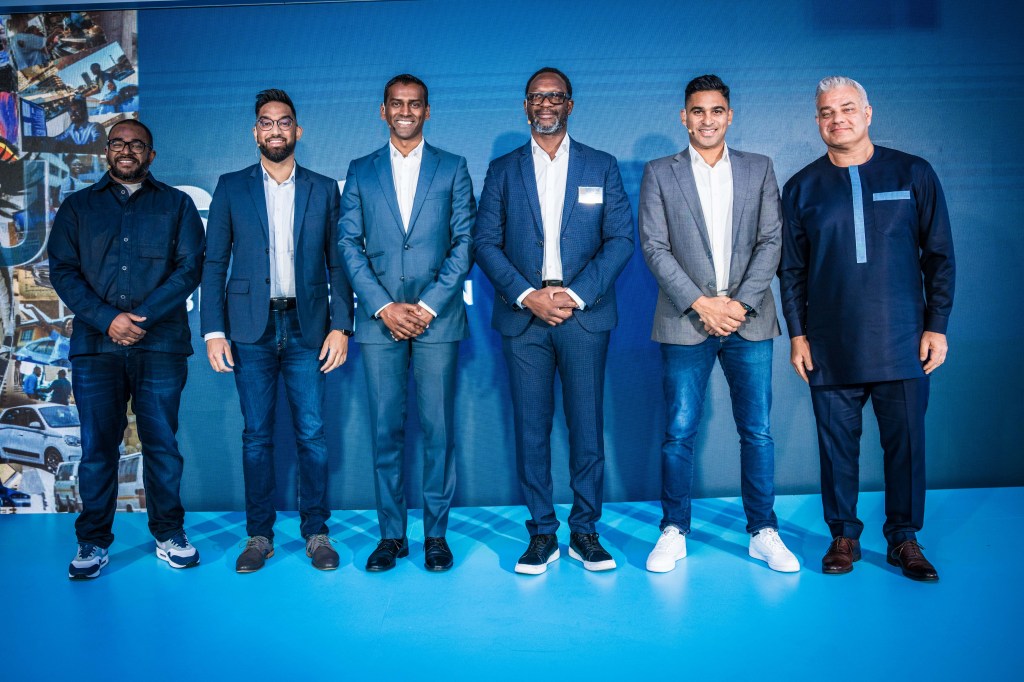
MTN and its digital platform business, Chenosis, in partnership with TransUnion Africa, has launched TransUnion Telco Data Score, a first-of-its-kind credit scoring solution that uses mobile phone call data records to help millions of South Africans with limited or no formal credit history gain access to financial services.
This alternative data scoring model leverages Call Data Records (CDR), which reflect patterns in mobile phone network usage behaviour and correlates it to an individual’s financial behaviour. By using telco data as a proxy for financial reliability, the TransUnion Telco Data Score enables lenders to accurately assess New-to-Credit (NTC) consumers and expand access to safe, affordable credit.
Helping the Financially Excluded
According to TransUnion estimates, over 1.4 million credit-invisible South Africans open new credit accounts each year, contributing to more than four million new accounts over the past three years. Yet traditional scoring models often fail to assess this segment accurately, leaving more than 16 million adults outside the formal credit system.
Approximately 35% of New-to-Credit consumers are under the age of 25, many of whom are new to the workforce and often use credit to buy clothing for work, highlighting the need for innovative tools that support younger, digitally active individuals who may lack a conventional credit footprint. Successfully integrating these and other excluded consumers into the economy could add approximately R173 billion1 to South Africa’s GDP.
“With over 500 million2 people across the continent excluded from formal financial systems, the scale of the challenge is undeniable. Traditional data models fail to reflect the realities of African consumers, leaving millions without access to credit and the opportunities it enables. Financial inclusion isn’t just part of our mission, it’s our mandate,” said Lee Naik, CEO of TransUnion Africa.
“That’s why we believe the only way forward is to think differently, to lead with bold, African-born solutions. Innovations like TransUnion Telco Data Score, designed for Africa, by Africa, are helping us responsibly harness mobile data at scale. In doing so, we’re not only expanding access to credit, but we’re also unlocking economic potential, accelerating inclusive growth, and reshaping the future of finance across the continent.”
Creating Opportunity with Consent and Compliance
The use of CDR data is subject to explicit consumer consent and is managed in compliance with South Africa’s Protection of Personal Information Act (POPIA). MTN is responsible for consent management and will ensure that Chenosis, MTN’s API marketplace, facilitates the connection between MTN’s data ecosystem and partners like TransUnion in a secure and scalable manner.
“This partnership demonstrates how mobile technology and secure data sharing can support positive change in the financial sector and unlock new opportunities for millions of South Africans,” said Selorm Adadevoh, Group Chief Commercial Officer, MTN Group. “We are committed to ensuring that data is used responsibly, with the customer’s interests at the forefront. This is a model of what responsible innovation can look like.”
Empowering Lenders and Growing the Economy
For lenders, the TransUnion Telco Data Score has demonstrated a 25–35% improvement in predictive performance over previous alternative data models, based on recent pre-launch validations across the retail and banking sectors.
By adopting TransUnion Telco Data Score, lenders can better predict user behaviour and support responsible lending by ensuring that credit users at risk of default are not overexposed and can be effectively supported throughout their credit journey.
Importantly, the product also helps New-to-Credit consumers establish and build their credit footprint over time. According to TransUnion data, low-risk individuals significantly increase their credit exposure within 18 months of becoming credit active, underscoring the long-term benefits of responsible financial inclusion strategies.
“With Chenosis, we enable collaboration between mobile operators and solution providers while maintaining high security and compliance standards,” said Waseem Amra, GM – Products and Platforms. “This partnership highlights how secure data access can support innovation in financial services that can transform lives.”
This partnership between Transunion Africa, MTN, and Chenosis reflects the growing trend of using diverse data sources to create more accurate and inclusive financial access. Integrating mobile network insights into credit scoring provides a practical and scalable way to reach more individuals, while maintaining high standards of privacy and compliance.
“With this inclusive innovation, TransUnion has taken the lead in creating an impactful solution to one of the continent’s most pressing challenges – finding responsible pathways to greater financial inclusion that will unlock opportunities for individual and national growth. By turning mobile data into meaningful opportunity, we have set the standard in making transformation possible by showing how technology can be used in groundbreaking alternative ways. Together with MTN and Chenosis, we are building a future where every South African, regardless of their financial history, has the chance to be seen, to be trusted, and to thrive,” Naik concluded. “When financial institutions can measure risk more effectively, they can lend more confidently, and more consumers can access opportunity, and that’s a win for everyone.”
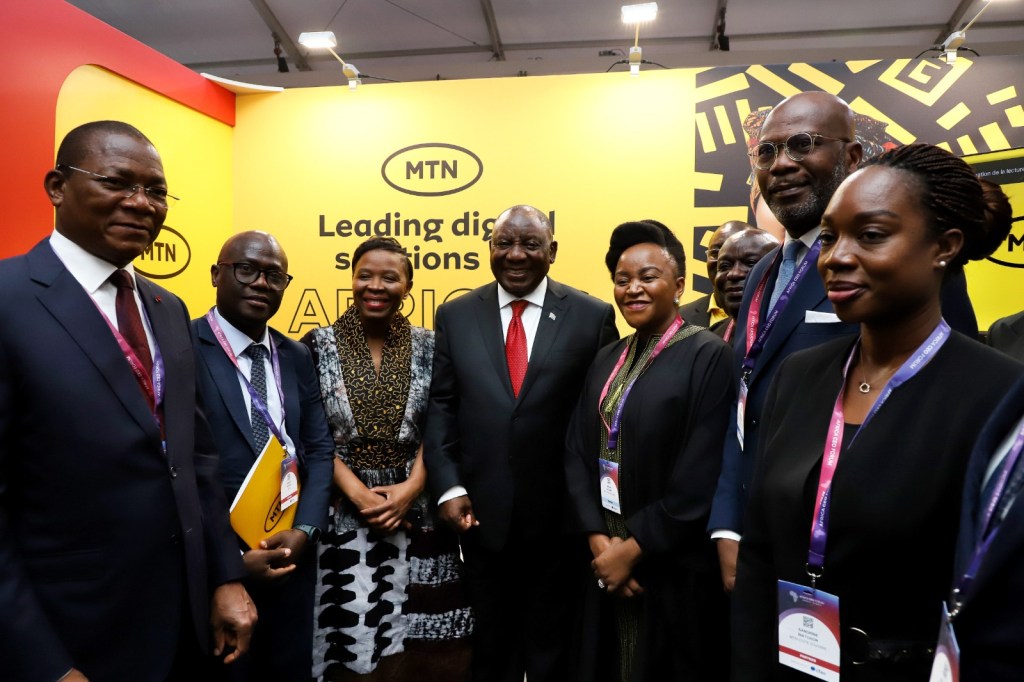
As part of our work to deepen stakeholder relations and partnerships for Africa’s progress, MTN Group is a platinum sponsor of the Africa CEO Forum, which brings together the continent’s most influential decision-makers for two days of meetings on the private sector’s key role in accelerating Africa’s development.
The 12th edition of the annual summit is taking place in Abidjan on 12–13 May 2025. Some 2 000 business leaders, investors and policy makers are in attendance to shape practical strategies to expedite Africa’s economic transformation.
The theme for 2025 is ‘Africa in a transactional world: Can a new deal between state and private sector deliver the continent a winning hand?’. It recognises the need for governments to strike a new deal with the African private sector, anchored on three pillars: an improvement of governance and accountability; targeted public policies to address Africa’s structural challenges; and the accelerated implementation of the African Continent Free Trade Agreement (AfCFTA).
“At part of our shared value priority to support Africa’s progress, we at MTN seek to align with the priorities of our continent and nation states and to actively engage governments and regulators to help shape industry dynamics,” said MTN Group Chief Sustainability and Corporate Affairs Officer Nompilo Morafo.
“MTN’s participation at the Africa CEO Forum reflects our nation states programme and our commitment to work together to enable inclusive growth,” she added, noting that escalating tensions in world geopolitics present headwinds to Africa’s budding economic recovery. “We believe the continent’s sustainable progress will come from trusted partnerships, coherent policy environments and shared investment in the systems that power Africa’s digital and economic future.”
As part of the Forum programme, MTN Group Senior Vice President: Markets, Ebenezer Asante, is participating in a panel discussion exploring tax policy and resource mobilisation. The session focuses on how public and private sector stakeholders can consult and collaborate to ensure fiscal environments that support both domestic priorities and the stability required for sustained investment.
MTN Côte d’Ivoire CEO Mitwa NG’ambi is contributing to a strategic roundtable on Africa’s digital transformation. This is looking at strategies to enhance network resilience and accelerate infrastructure deployment – particularly in underserved areas – and the role of policymakers in fostering an investment-friendly environment that accelerates digital transformation.
MTN Group’s sponsorship and participation at the Africa CEO Forum underscore our commitment to building a more connected, inclusive and prosperous Africa.
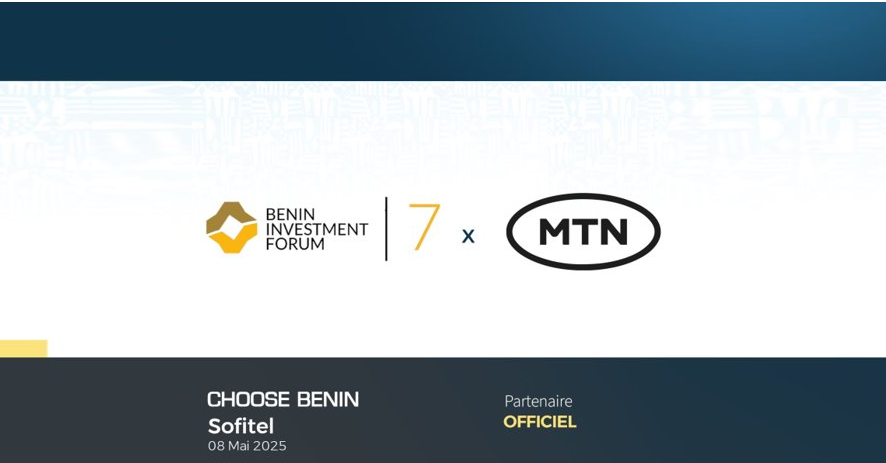
The 7th edition of the Benin Investment Forum (BIF) will take place from 8 to 9 May 2025 at the Sofitel Hotel in Cotonou, bringing together leaders from government, business, and civil society to foster economic cooperation, attract foreign direct investment, and promote inclusive development. Organised by the Government of Benin through the Investment and Export Promotion Agency (APIEX) and the Benin Chamber of Commerce and Industry, the Forum comes at a crucial moment in Benin’s development, underpinned by structural reforms and macroeconomic stability.
MTN Group proudly joins the Forum as the Platinum and Headline Sponsor. This strategic partnership follows MTN Group President and CEO, Ralph Mupita’s market visit to Benin in January 2024, where the company reaffirmed its longstanding commitment to the country’s development as a trusted partner. MTN’s participation at BIF 2025 will be led by Senior Vice President Markets Ebenezer Asante, who will deliver a keynote address at the Opening Ceremony on the topic “MTN: Partner in Africa’s Development.” He will be joined by MTN Benin CEO Uche Ofodile and MTN Group Chief Sustainability and Corporate Affairs Officer Nompilo Morafo, both of whom will participate in high-level discussions on finance, the future of technology, and women’s leadership in business.
MTN will also take the lead in hosting the exclusive MTN Investment Night, a high-level networking engagement aimed at facilitating meaningful dialogue among investors, policymakers, and senior business leaders. As part of its broader contribution to the Forum, MTN will collaborate with the Benin Ministry of Trade and Commerce to evaluate start-up pitches, spotlighting innovative solutions from emerging entrepreneurs. Additionally, the Group will deliver an inspirational leadership masterclass, curated to inspire and equip the next generation of African business leaders with insights drawn from MTN’s journey of growth and transformation across the continent.
Having operated in Benin for more than 25 years, MTN has made significant contributions to the country’s digital infrastructure, financial inclusion, and social development. The Group has committed over $215 million in new investments through 2026, including the rollout of 5G services, expansion of fibre connectivity, and the construction of a new MTN Benin headquarters. MTN’s impact also extends into health, education, and entrepreneurship through the work of the MTN Foundation, reinforcing its belief that digital access is key to unlocking national and regional progress.”
Commenting on MTN’s commitment to the Benin Investment Forum and the country, Ebenezer Asante, MTN Group Senior Vice President, Markets stated: “Our presence at the Benin Investment Forum reflects more than sponsorship, it’s a reflection of our unwavering belief in Benin’s potential and our shared journey toward inclusive digital transformation. Through strategic partnerships rooted in national development goals, MTN is proud to be a catalyst for progress, investment, and innovation in Benin and across the continent.”
MTN’s participation in the Benin Investment Forum 2025 exemplifies the company’s belief that inclusive, resilient growth must be rooted in strategic collaboration between the public and private sectors. As a partner of choice to African governments, MTN continues to play a leading role in building the infrastructure, capabilities, and ecosystems required for nations to thrive in a digital world. Through its involvement in BIF 2025, MTN reaffirms its commitment to Benin’s development journey and to advancing Africa’s digital and economic integration.

MTN Group announces the release of our annual reports for 2024. Produced under the theme of ‘Accelerating Africa’s digital future’, the suite of reports provides a thorough overview of our robust underlying performance, strategic delivery and contribution to society, as well as our priorities ahead.
“Committed to operating responsibly and ethically, in 2024 MTN remained focused on executing on our strategic intent of leading digital solutions for Africa’s progress, despite the global uncertainties,” said MTN Group President and CEO Ralph Mupita.
“We couldn’t have done this without the support of our many diverse stakeholders. We invite you to read our reports, which strive to provide meaningful information tailored for various specific audiences.”
The 2024 Integrated Report tells the overall MTN value-creation story, detailing our strategic achievements and initiatives, including our operational highlights, financial performance and progress on ESG. It explains how MTN leverages our brand, broad presence and skills as well as leading connectivity business, fintech offerings and digital infrastructure to expand digital and financial inclusion across Africa. This is done while mitigating risks and making the most of opportunities in our 16 markets.
This information, which reflects integrated thinking at the Group, endeavours to assist our investors and other stakeholders to understand the Group’s overall health and future focus. It is published alongside sustainability and financial reports as well as other important information for our shareholders.
ESG remains at the core of our strategy and is aligned with our work to advance the United Nations Sustainable Development Goals through our business activities and our support of governments, communities and customers. Our Sustainability Report provides a view of the Group around sustainability-related risks and opportunities that could reasonably be expected to affect MTN’s prospects.
As stewards of the digital age, we believe that safeguarding human rights is at the core of connectivity. In a year of numerous elections across the world, our Transparency Report outlines how MTN reinforced digital rights in 2024 by ensuring secure, uninterrupted connectivity to support free and fair democratic processes.
It also spells out how the rapid expansion of AI presents new ethical risks, prompting MTN to develop a Responsible AI Policy to uphold digital rights and data privacy.
In 2024, Africa faced intensifying climate risks, making sustainability and resilience essential to MTN’s strategy, regardless of changes in countries’ and companies’ adherence to climate policies. Our Climate Report highlights how we are actively addressing both mitigation and adaptation while leveraging emerging opportunities. In the year, we surpassed our emissions reduction target, cutting emissions by more than 46% off a 2021 baseline.
Our Tax Report underscores the role we play in supporting the socioeconomic development of our host nations. In 2024, MTN’s total tax contribution was R52.7 billion, made up of corporate taxes, indirect taxes, withholding taxes, payroll taxes, operating licence fees and other payments to government authorities.
The suite of annual reports also includes a Notice of Annual General Meeting, which invites our shareholders to participate in our virtual meeting on Thursday 29 May 2025. Our Remuneration Report provides transparent disclosure of the remuneration of our leadership based on performance against strategic priorities.
Our ESG Data Booklet is a handy resource for those interested in detailed disclosures relating to MTN’s planet, people, ethics and governance matters. As well as relevant statistics, it highlights our policy and position statements on various ESG issues as well as a comprehensive GRI disclosure index.
“Our prospects and investment case are underpinned by the structural demand we see in data and fintech,” said Mupita. “As a business, we remain resolute in our commitment to accelerating Africa’s digital future and will maintain the focus on operational excellence and strategic execution to capture the exciting growth opportunities in our footprint. We thank our stakeholders for their ongoing support.”
Click HERE to view the reports
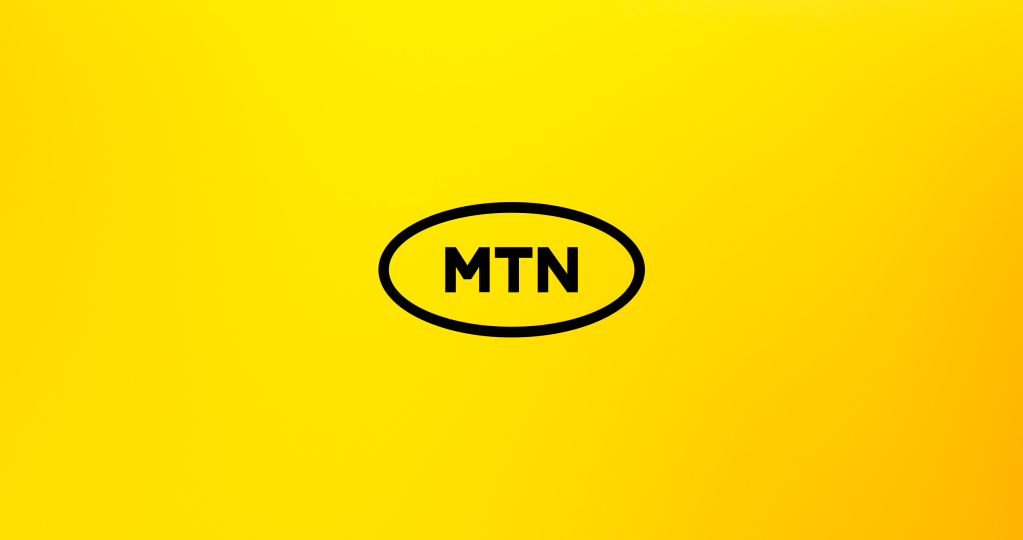
No evidence of compromise to any of our critical infrastructure, core MTN platforms or services
MTN Group would like to inform stakeholders that it has experienced a cybersecurity incident that resulted in unauthorised access to personal information of some MTN customers in certain markets. Our core network, billing systems and financial services infrastructure remain secure and fully operational.
An unknown third-party has claimed to have accessed data linked to parts of our systems. At this stage we do not have any information to suggest that customers’ accounts and wallets have been directly compromised.
The Group immediately activated its cybersecurity response processes including informing the South African Police Service (SAPS) and the Hawks in South Africa.
We also informed the relevant country authorities and will continue to update them on an ongoing basis while working closely with them and law enforcement agencies in supporting their investigations.
We are in the process of notifying affected customers in compliance with local legal and regulatory obligations.
As a reminder, customers are encouraged to remain vigilant and follow regular security measures, such as:
The privacy of information is our top priority and MTN remains committed to safeguarding the integrity of our systems and the trust placed in us by our customers and other stakeholders. We will continue to contain and manage this matter carefully.
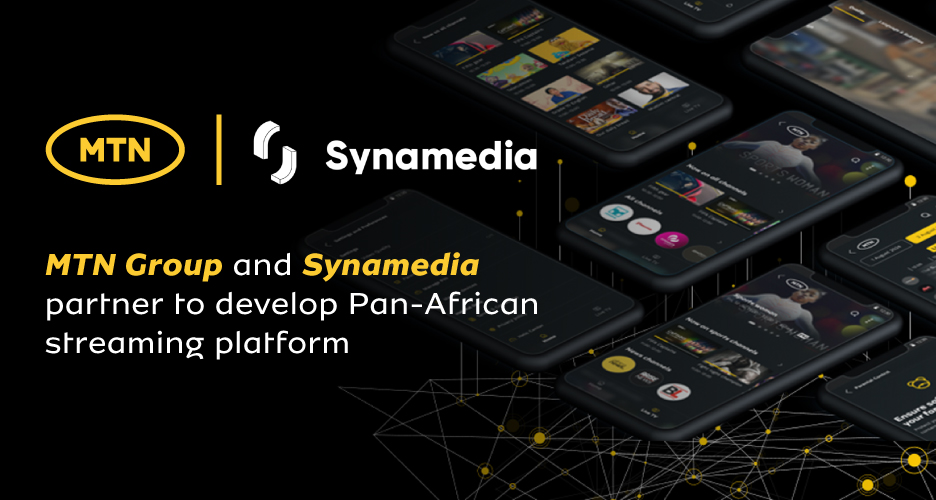
MTN Group, Africa’s leading mobile network operator, has entered a strategic partnership with Synamedia, a leading video software provider, to develop a new streaming platform tailored for mobile and fixed broadband subscribers across Africa. This collaboration aims to enhance digital content accessibility and provide a diverse range of viewing options to meet the evolving preferences of audiences throughout the continent.
The service will leverage Synamedia’s advanced, cloud-based technologies to deliver both linear television and video-on-demand content. The platform will offer diverse monetisation models, including subscriptions, ad-supported content, and free streaming channels with targeted advertising. Each market will benefit from a curated content strategy, thoughtfully adapted to local cultures, languages, and viewing habits – ensuring deep relevance and strong audience resonance across the continent.
Synamedia’s technology will play a key role in shaping the platform, enabling seamless content management and personalised recommendations. With Synamedia’s integration expertise, the platform will be built for reliability and scalability.
Selorm Adadevoh, Group Chief Commercial Officer at MTN Group, said, “We see a unique opportunity to transform video consumption in Africa with high-quality, accessible, and relevant content. This partnership enables us to leverage cutting-edge technology and deep customer insights to enhance entertainment experiences and drive digital inclusion.”
Paul Segre, Synamedia CEO, said, “Thanks to MTN’s leadership and innovation, smartphone owners across Africa will be able to enjoy innovative linear TV and on-demand video. By taking advantage of the breadth of our integrated, cloud-based portfolio to quickly deploy new services at scale, MTN will be able to create a groundbreaking set of offerings for customers and viewers that will drive new revenues.”
This collaboration underscores MTN Group and Synamedia’s shared commitment to advancing digital inclusion and enhancing access to quality content across Africa. By leveraging innovative technologies and a localised approach, this partnership is poised to create a service that brings value to audiences and contributes to the development of the continent’s digital ecosystem. With this strategic alignment, MTN and Synamedia are taking meaningful steps toward empowering communities, driving industry progress, and shaping the future of entertainment in Africa.
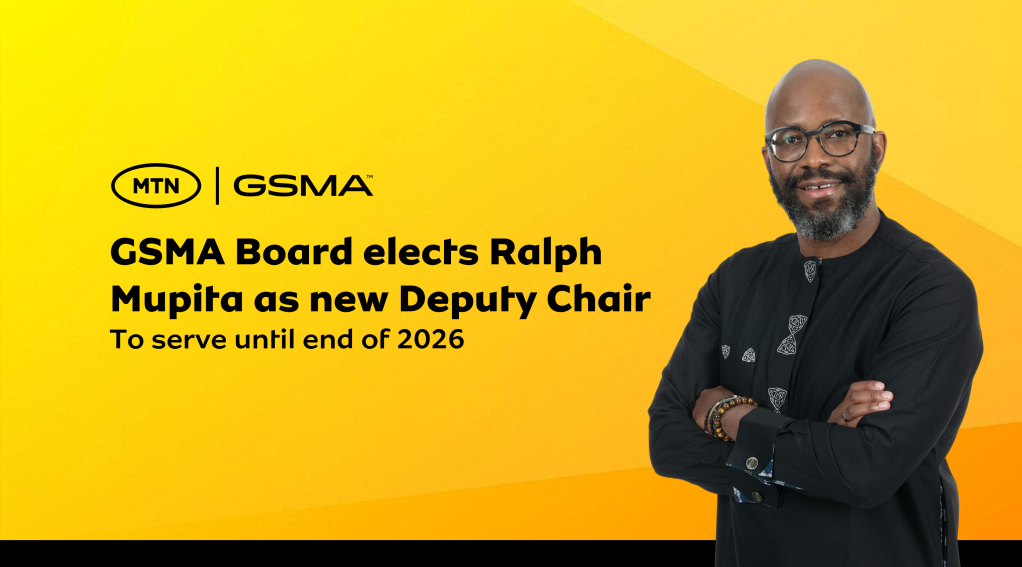
GSMA Board names new Deputy Chair to serve until end of 2026
The GSMA Board of Directors has elected Ralph Mupita as Deputy Chair for the remainder of the Board term, until the end of 2026. In this role, he will support the Chair and Board in overseeing the strategic direction of the organisation, which represents the world’s mobile operators and companies in the broader mobile ecosystem.
“This appointment is a great honour as it comes at a time of rapid developments in technology and increasing digital adoption across Africa. Mobile technology will play a critical part in addressing the pressing challenges facing our communities and unlocking the full potential of Africa and the rest of the Global South, ensuring that no one is left behind in this journey toward a more connected future,” Mr Mupita said.
“I am committed to supporting the strategic direction of the GSMA, which plays a pivotal role in representing the global mobile ecosystem. Together, we will continue to drive innovation and positive change in the industry,” he added.
Vivek Badrinath, Director General of the GSMA, commented: “My warmest congratulations to Mr Mupita on being elected as the Deputy Chair of the GSMA Board. His experience will be invaluable as we continue to navigate the dynamic landscape of our industry. I look forward to working closely with him and the Board.”
Mr Mupita is the Group President and CEO of MTN Group, a position he has held since September 2020, after previously serving as MTN Group’s Chief Financial Officer from April 2017. Since joining MTN, he has helped strengthen the Group’s financial position and strategy formulation and overseen the successful listing of MTN subsidiaries in Ghana, Nigeria, Rwanda and Uganda.
Prior to joining MTN, Mr Mupita was CEO for Old Mutual Emerging Markets, providing financial service solutions to individuals and corporates across 19 countries in Africa, Latin America and Asia. He holds a BSc. Engineering (Hons) and MBA from the University of Cape Town and has completed the General Management Program at Harvard Business School.
Read accompanying release here.